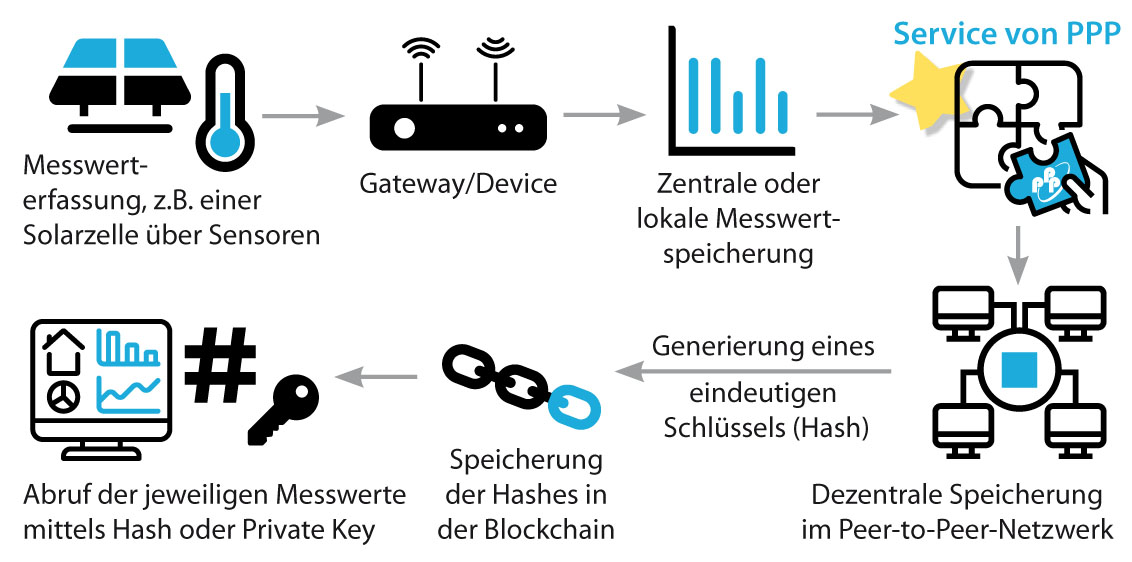Blockchain technology – your application idea, our solution
Blockchain is a technology for storing data, e.g. from a transaction or measurement, in a decentralized network.
This is done irreversibly, transparently, anonymously and securely.
Advantages of the blockchain
Decentralization
The data is stored decentrally on various devices worldwide. This means that system failures and successful hacker attacks are virtually impossible.
Counterfeit protection
Encryption methods as well as validation and authorization mechanisms protect the data in the blockchain against manipulation.
Transparency
Unauthorized changes to logged data are immediately disclosed so that the data is complete, permanent, up-to-date, correct and always available.
Reliability
Decentralized and redundant data storage for all blockchain participants protects against outages and data loss.
Process optimization
Blockchain technology makes it easy to track transactions in logistics and production processes, for example. This makes it possible to uncover weak points in the supply chain, for example.
Low transaction costs
The blockchain enables direct (peer-to-peer) transactions between participants without a third party, such as banks, notaries or IT service providers. Without these instances, the costs for users are reduced.
Blockchain solutions from PPP
- Analysis of the current situation
- Requirements management (requirements engineering)
- Recommendations for the use of blockchain technologies
- Development and construction of individual platforms
- Implementation of blockchain technologies in business processes
- Service and support
How the blockchain works
using the example of sensor data storage

Integrationslösung zur Speicherung generierter Daten im P2P-Netzwerk sowie als Transaktion in der Blockchain
Frequently asked questions
What is blockchain technology?
Blockchain technology is a method of storing data, such as transactions or measurements, securely, transparently and irreversibly in a decentralized network.
What are the advantages of blockchain technology?
Blockchain technology offers the following advantages:
- Decentralization: data is stored on different devices worldwide, making failures and successful hacker attacks unlikely.
- Counterfeit protection: encryption methods and validation mechanisms protect the data from manipulation.
- Transparency: Unauthorized changes to logged data are disclosed, making the data complete, correct and constantly available.
- Reliability: Decentralized and redundant data storage protects against failures and data loss.
- Process optimization: The blockchain enables the simple tracking of transactions, e.g. in logistics and production processes, in order to uncover weak points in the supply chain.
- Low transaction costs: Direct transactions between participants without a third party, such as banks or notaries, enable lower costs for users.
How does blockchain technology work?
The blockchain consists of a chain of blocks in which transaction data is stored. Each block contains a hash value of the previous block, which ensures that the data cannot be forged. New transactions are validated by the network participants and included in a new block.
Is the blockchain safe from hacker attacks?
The decentralized storage of data on different devices and the encryption methods make the blockchain very secure against hacker attacks. A successful attack would have to affect many participants in the network at the same time.
What areas of application are there for blockchain technology?
Blockchain technology is used in various areas such as financial transactions, supply chain management, voting systems, healthcare, copyrights and much more.

